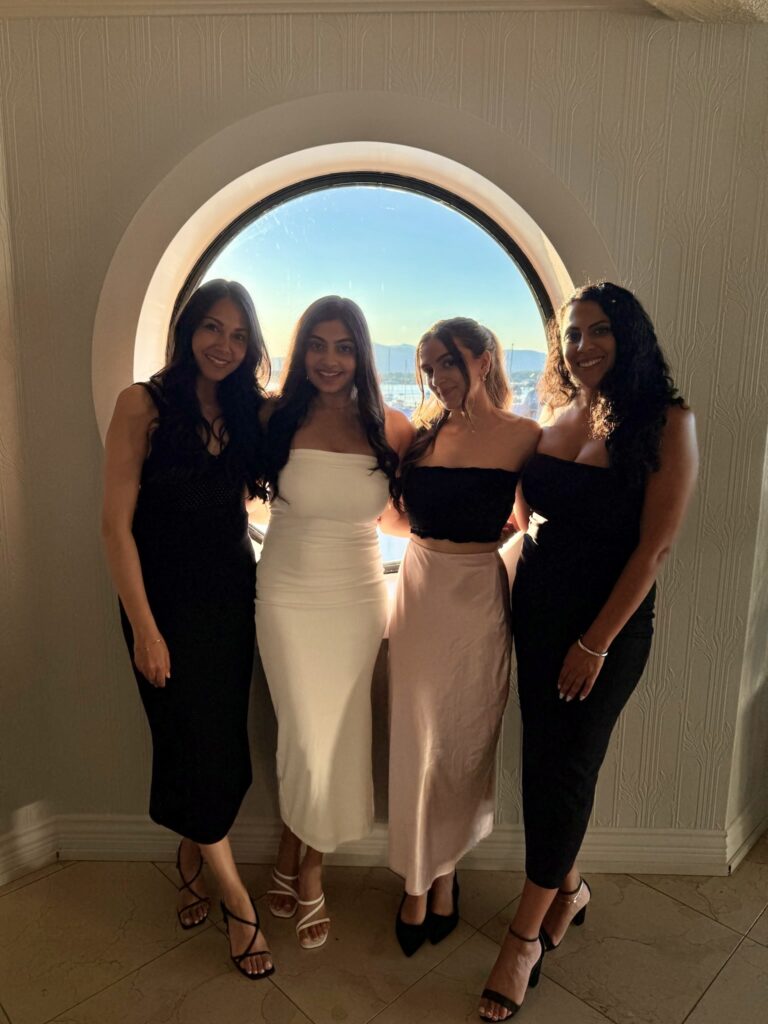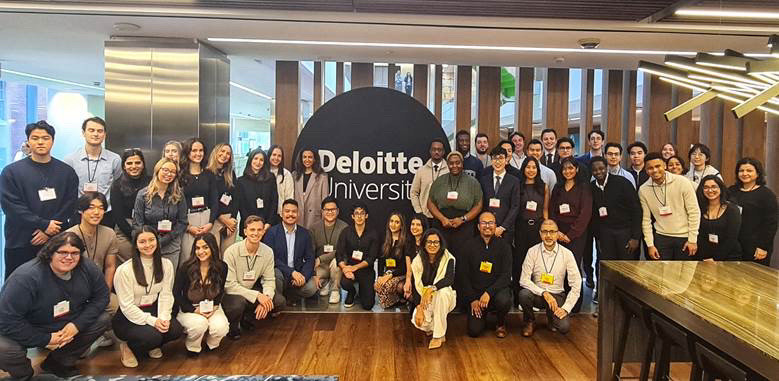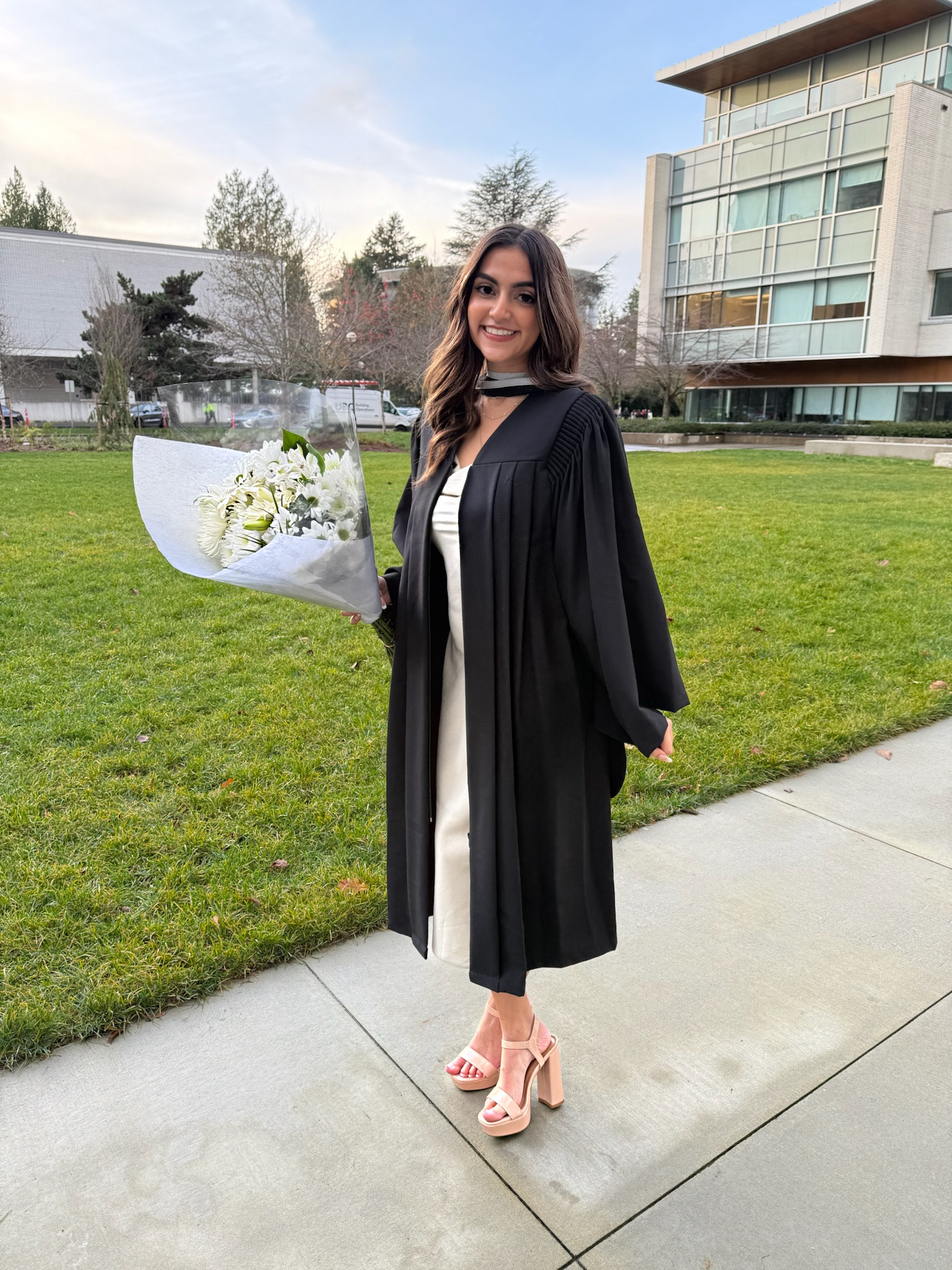“I Actually Got Rejected from the Job I Have Now”: Soniya Huda on Rejection as Redirection
BEEDIE LUMINARIES — From the 2020 Cohort of the SHINE Program, Soniya Huda is a 2024 graduate of the UBC Sauder School of Business, where she specialized in Finance. Before starting her current role at Deloitte, she began building her career through internships in asset management, internal audit and risk management, and buy-side growth capital/alternative investments.
Soniya’s path to a thriving career, however, was far from linear. Like many new graduates, she faced an adjustment period marked by uncertainty and setbacks. In the article below, Soniya shares the highs and lows of her professional journey so far—and how rejection ultimately became a powerful tool for redirection and growth.


SONIYA HUDA — Let’s be honest: your dream job probably won’t land in your lap after one polished resume and a well-worded “I’m so excited about this opportunity!” email.
I know, because I literally got rejected from the job I have now.
Yup. I went through multiple rounds of interviews. Networked with everyone. Had amazing conversations. Felt like I nailed it. And then—bam—rejection.
I was disappointed. I’d poured what felt like over 100 hours into networking and coffee chats—some of which meant commuting downtown just for a 30-minute conversation. It was exhausting. But instead of letting it confirm every anxious thought about not being good enough, I made a choice: I’d ask for feedback. I’d stay on their radar. I’d be annoying (in a polite, professional, you-won’t-forget-me way).
Eventually, I found out the rejection wasn’t even about me—it was due to a hiring slowdown. And a few months later, when things picked back up, I got the call.
Hey Soniya, it’s great to chat. Can we start with a quick introduction for those that may not know you?
Of course! My name is Soniya, I graduated in May 2024 from UBC’s Sauder School of Business, specializing in Finance.
During undergrad, I made it my mission to squeeze every drop out of the university experience—and I think I did a pretty good job of it. In my 3rd year, I spent eight months on international exchange in Australia, completed three co-op terms (each four months long), and joined four clubs—both within and outside of my academic focus, all while still somehow managing to graduate in four years.
Part of that drive came from two things:
First, I was trying to make up for the fact that COVID wiped out my entire first year of university life.
Second, I wanted to have an interesting answer to the inevitable “So, tell me about yourself?” question in interviews (spoiler: it worked)
My co-op journey was a mixed bag—in the best way. I started in inside sales at Mackenzie Investments, moved into internal audit and enterprise risk at ICBC, and wrapped things up at Beedie Capital, working on deal sourcing and growth capital deployment.
Now, I work full-time at Deloitte in the Strategy, Risk & Transactions group, specifically on the Deal Transformation and Post Merger Integration Team. Yes, that’s a lot of buzzwords—I’m aware.If you had told first-year me that I’d land a full-time offer at Deloitte straight out of undergrad? I would’ve laughed. Like, hard. I didn’t think I was “smart enough” for a job like this. But here’s the thing: it’s not all about being book smart. It’s about interviewing well, building real connections, and showing up as someone people actually want to work with.

The truth about being “book smart”? It’s not enough.
Exactly. Good grades will get your foot in the door. Maybe.
But what’s made the biggest difference in my journey?
Following up. After every coffee chat. Every interview. Every “quick intro.”
Speed. Gen Z gets a lot of heat for being glued to our phones, but guess what? Use that responsiveness to your advantage. You’d be shocked how many people will choose the candidate who followed up first.
Standing out. I learned to lead with curiosity, enthusiasm, and a little bit of boldness. Even if you don’t feel confident yet—act interested – I can’t stress this enough: fake it till you make it (to a certain degree). Be memorable. That’s half the battle.
Mistakes I See Gen Z Making (And I Say This with Love)
5 Reasons You’re Not Succeeding in Your Interviews (Yet)
1. Thinking “no” means “never.”
A rejection isn’t the end of the story. Stay on their radar. Reapply. Engage. Let them see your name again. You never know when the timing will line up differently—or when they’ll remember you for something else entirely.
2. Ghosting your own job hunt.
You get overwhelmed, avoid your inbox for a few weeks, and suddenly you’ve missed multiple application deadlines. It happens. But staying in motion—even slowly—is what counts.
Think of it like going to the gym. You wouldn’t quit because you didn’t see results after one session (okay, maybe you would)—but we all know you won’t get anywhere without consistency.
3. Undervaluing follow-through.
A thank-you email. A quick LinkedIn follow-up. These small moves say more about you than a beautifully designed résumé. Even if you don’t get a response, trust me—they notice.
4. Saying you “love new challenges” but never actually taking any.
We can tell. You know that line: “I’m always open to trying new things!” That’s great—but if you have no story to back it up, it’s going to feel hollow. Interviewers can smell a recycled answer from a mile away. Instead of defaulting to what you think we want to hear, pause and reflect. Do you actually enjoy new challenges? If not—why? Fear? Habit? Loyalty to your comfort zone?
That kind of self-awareness? It’s powerful. It helps you grow—or it helps you recognize when a role might not be right for you. Either way, it’s useful.
5. Thinking networking is cringey and pointless.
Yeah, it can feel awkward. You’re sliding into LinkedIn DMs like it’s a dating app, hoping not to get ghosted. But here’s the thing, it works. We talk about coffee chats at work. “Hey, did you meet that candidate? They were sharp.” And suddenly, you’re a real person—not just a name on a PDF.
Even if the conversation doesn’t lead anywhere immediately, you’ll get intel you can’t find online—like team dynamics, manager quirks, or what not to say in the interview (which can be pure gold).
My Final Thoughts
If you’re a Gen Z-er trying to navigate this weird, chaotic, post-pandemic job market—don’t panic. The truth is, everyone’s figuring it out. The key is to stay persistent, stay curious, and keep showing up. Even when it’s awkward. Even when you’re unsure.
Because sometimes, the job you get… is the one that said “no” first.
Thanks for your wisdom, Soniya! Until next time!
Looking to connect with alumni students like Soniya? Connect with her here.
